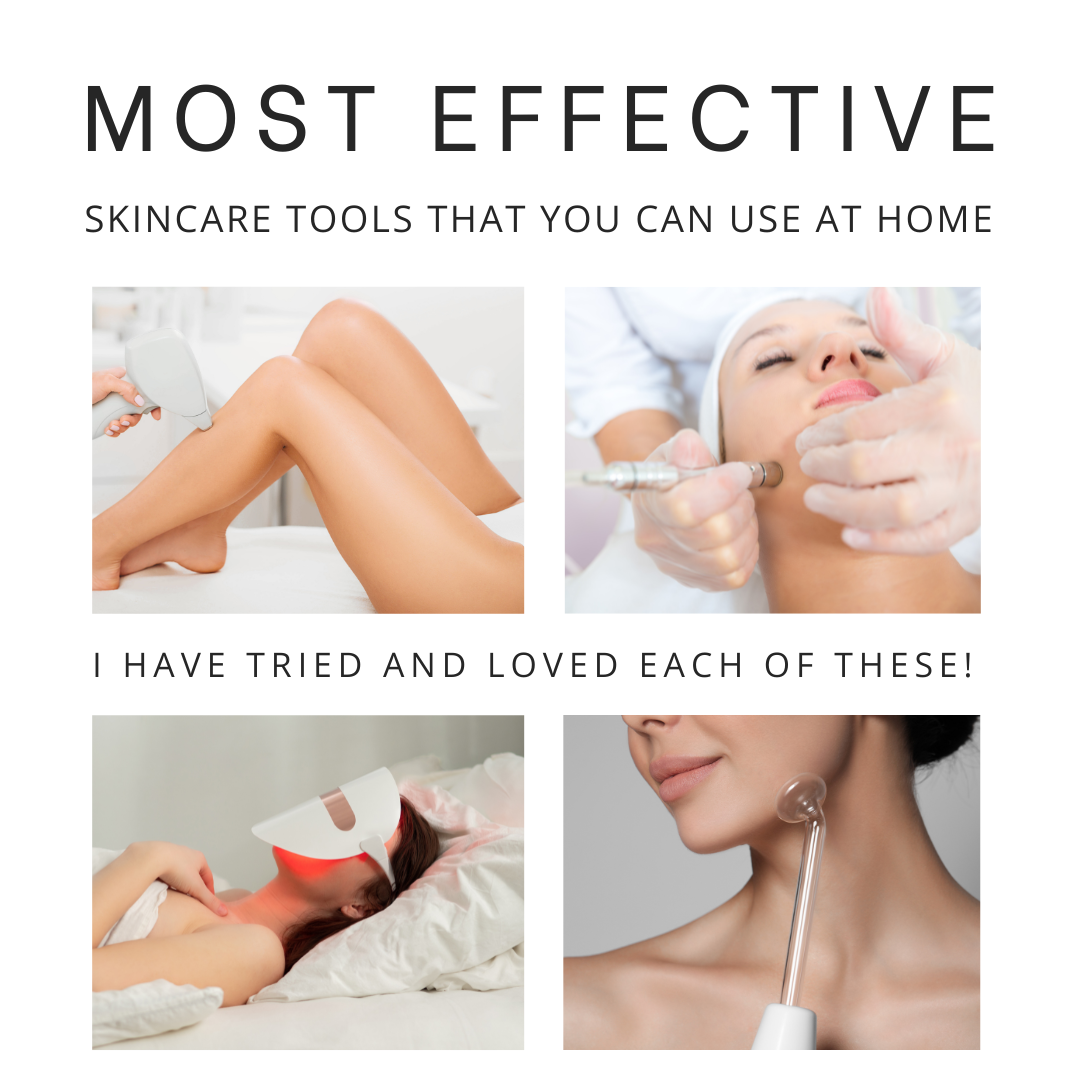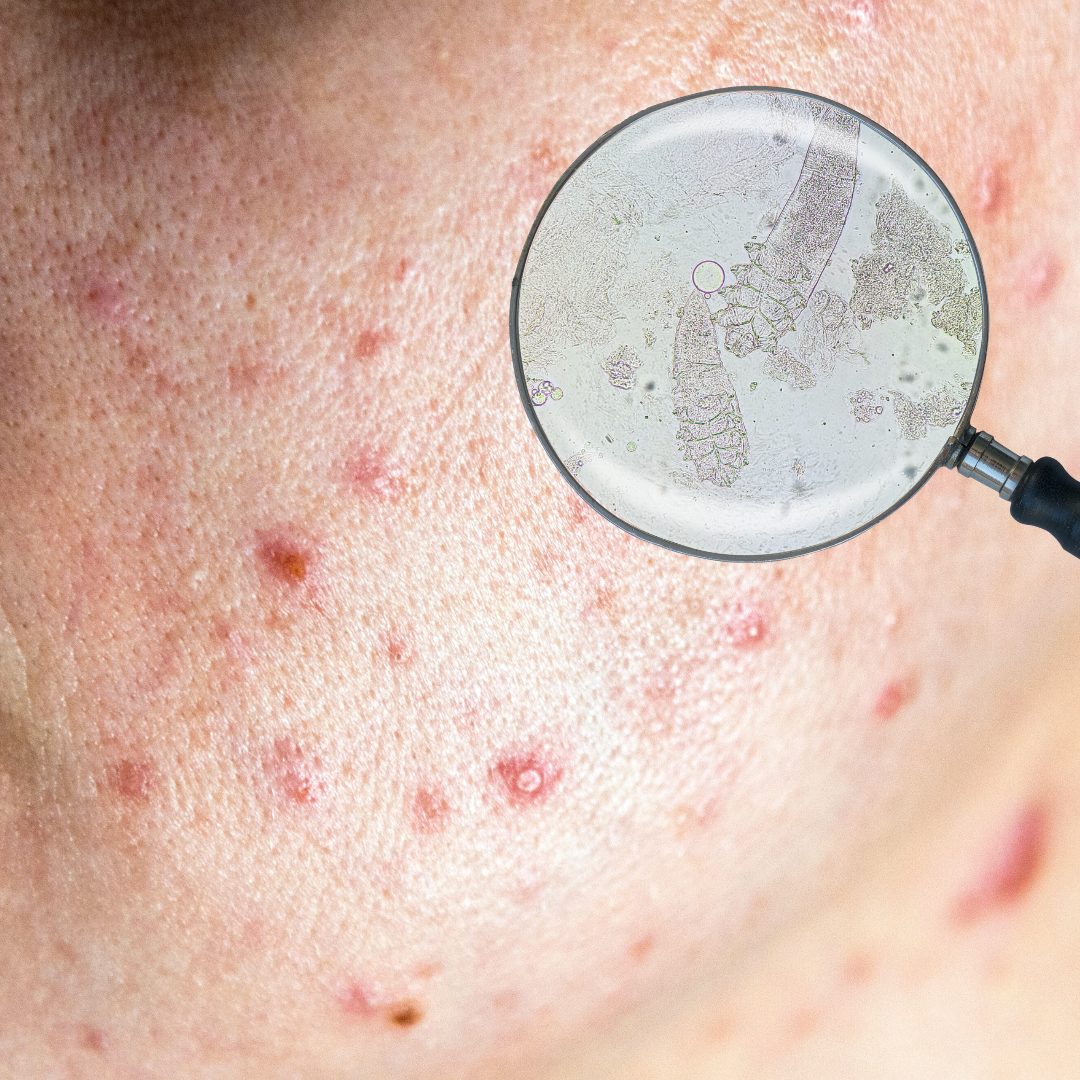
UNLOCK Radiant Skin This Summer: The Ultimate Skincare Routine you Can't Miss!
Summer Heat and Acne....
As the temperature rises during the summer months, so does the likelihood of experiencing acne breakouts. The combination of heat, humidity, and increased sweat production can lead to clogged pores and inflammation, making it essential to adjust your skincare routine to combat these challenges. Fungal acne is especially more common at this time of year because it thrives on warm wet skin. Bacteria also enjoys the warm summer months - so summer is a double whammy for producing acne of all types. Sweat mixes with oil and dead skin cells, leading to clogged pores and potential breakouts. Additionally, increased sun exposure can cause skin dehydration, triggering the overproduction of oil to compensate, further exacerbating acne.
How to prevent summer acne?
1. Cleanse your face twice a day with a gentle, deep cleaning cleanser to remove sweat, oil, and impurities without stripping the skin. I like Pacifica because it is effective, gentle, and inexpensive! You really don't need lots of bells and whistles in your cleanser.
2. Use a lightweight serum and/or moisturizer to keep your skin hydrated without clogging pores. Use something with hyaluronic acid! It's the best to rehydrate skin!
Of course, my favorite is Clear 6 Serum because it's light, hydrating, and prevents 6 causes of acne including the dreaded fungal acne.
3. Apply a broad-spectrum sunscreen with at least SPF 30 to protect your skin from UV damage and prevent inflammation. I love Elta Clear- "Clear" is in the name because it helps prevent acne with niacinamide, not because the color is clear. It's actually tinted.
4. Avoid heavy makeup and opt for non-comedogenic, mineral-based products to prevent pore blockage. I love a tinted SPF as my makeup like: Tinted ISDIN or the Elta Clear! The ISDIN is a little darker with more coverage but also more shiny. This Super Goop is also light abd has lots of color options!
5. Shower after sweating to remove excess oil, bacteria, and fungi from the skin's surface.
6. Exfoliate regularly:
Exfoliation helps remove dead skin cells and allows your skincare products to penetrate more effectively. You can use a physical exfoliant or a chemical exfoliant. I like: Paula's Choice for the chemical option. And Touch Micro Derm Scrub for the physical option. I do NOT like the apricot scrubs with giant pit particles because they will scratch your skin leaving it susceptible to bacteria. Use a scrub where the particles are all very close together and rounded like the one I mentioned. Please remember exfoliation will make you more sun sensitive so lather up the SPF before heading outside.
7. Treat sun damage: If you do get sunburned, soothe your skin with aloe vera gel and apply products with soothing ingredients like chamomile and cucumber. If you have an aloe plant at home, break it open and use the gel inside directly on your skin. If not- This is a beautiful Aloe Product by Absolutely Natural
How to treat active summer acne?
If you experience a breakout, consider incorporating the following treatments into your skincare routine: Of course My Favorite for all types of acne is Clear 6 Serum!
1. Salicylic acid, or sulfur spot treatments target active breakouts, are anti-bacterial and reduce inflammation. Both ingredients are great for fungal and bacterial acne.
I love Paula's Choice Spot Treatment because she uses 9 % salicylic where most have 2%. For a sulfur based Spot Treatment, I like Kate Somerville's. She combines Beta Hydroxy Acid and Sulfur for a double whammy.
2. Use a clay mask once a week to draw out impurities and excess oil from the pores. I love Kiehl's All Natural Clay Mask.
3. Consult a dermatologist for prescription-strength treatments such as accutane or antibiotics, or birth control pills for severe acne cases.- (Accutane and Doxycycline will make you VERY sun sensitive)
By adjusting your skincare routine to combat the challenges of summer, you can effectively manage acne breakouts and enjoy clear, healthy skin throughout the season.
As the temperatures rise and the sun shines brighter, it's essential to adjust your skincare routine to protect and nourish your skin during the summer months. Follow the above expert tips to ensure your skin stays healthy and glowing all season long.
Don't forget, sunscreen is especially important in the summer skin routine.
The summer sun can be harsh on your skin, leading to sunburn, premature aging, and an increased risk of skin cancer. A proper summer skin routine can help protect your skin from these harmful effects and keep it looking its best.
1. Sunscreen: Apply a broad-spectrum sunscreen with at least SPF 30 every day, even on cloudy days. I prefer SPF 46 or higher- See Elta, ISDIN, and Super Goop above!
When it comes to protecting your skin from the harmful effects of the sun, sunscreen is a crucial tool in your skincare arsenal. But why is sunscreen so important, and how does it work to keep your skin safe?
What are the benefits of using sunscreen?
Using sunscreen regularly can help prevent sunburn, premature aging, and skin cancer. In fact, studies have shown that wearing sunscreen daily can reduce the risk of developing skin cancer by up to 50%. Additionally, sunscreen helps to protect the skin from harmful UV rays that can cause damage to the skin cells.
How does sunscreen work?
Sunscreen works by either absorbing or reflecting the sun's harmful UV rays. Chemical sunscreens absorb the UV rays, while physical sunscreens reflect them. Both types of sunscreen provide protection against UVA and UVB rays, which are known to cause skin damage.
When should you apply sunscreen?
It is recommended to apply sunscreen every day, even on cloudy days, as UV rays can penetrate through clouds. For maximum protection, apply sunscreen at least 15 minutes before going outside and reapply every two hours, or more frequently if swimming or sweating.
What SPF should you use?
The SPF (Sun Protection Factor) of sunscreen indicates how long it will take for UVB rays to redden the skin when using the product compared to not using any sunscreen. It is recommended to use a broad-spectrum sunscreen with an SPF of 30 or higher for optimal protection.
Remember, sunscreen is an essential part of any skincare routine, and using it consistently can help protect your skin from the damaging effects of the sun. Make sure to choose a sunscreen that suits your skin type and lifestyle to ensure you stay protected all year round.
Mineral vs. Chemical Sunscreen
When it comes to protecting your skin from the sun's harmful rays, choosing the right sunscreen is crucial. But with so many options on the market, how do you know which type is best for you? Let's dive into the differences between mineral and chemical sunscreens to help you make an informed decision.
What are Mineral Sunscreens?
Mineral sunscreens, also known as physical sunscreens, contain active mineral ingredients like zinc oxide or titanium dioxide. These minerals work by sitting on top of the skin and reflecting UV rays away from the body. They are known for being gentle on sensitive skin and less likely to cause irritation.
What are Chemical Sunscreens?
Chemical sunscreens, on the other hand, contain organic compounds like oxybenzone, avobenzone, octisalate, octocrylene, homosalate, and octinoxate. These chemicals work by absorbing UV rays and converting them into heat, which is then released from the skin. Chemical sunscreens are often preferred for their lightweight feel and ease of application.
Which One Offers Better Protection?
Both mineral and chemical sunscreens are effective at protecting the skin from UV damage, but they work in different ways. Mineral sunscreens provide broad-spectrum protection against both UVA and UVB rays, making them a great choice for those with sensitive skin. Chemical sunscreens also offer broad-spectrum protection, but some people may be sensitive to certain chemical ingredients.
Are There Any Differences in Application?
Mineral sunscreens can leave a white cast on the skin due to the reflective nature of the minerals. However, newer formulations have improved this issue. Chemical sunscreens are typically easier to apply and blend into the skin without leaving a residue. It's essential to follow the instructions on the sunscreen label for proper application.
Which One is More Environmentally Friendly?
Mineral sunscreens are often considered more environmentally friendly because they are less likely to harm marine life and coral reefs. Chemical sunscreens, especially those containing oxybenzone and octinoxate, have been linked to coral bleaching and damage to aquatic ecosystems. Choosing a mineral sunscreen can help protect both your skin and the environment.
Ultimately, the choice between mineral and chemical sunscreen comes down to personal preference and skin sensitivity. Both types offer effective sun protection, so it's essential to find a sunscreen that works best for your skin type and lifestyle. Remember to reapply sunscreen every two hours when outdoors to ensure continuous protection against the sun's harmful rays.
2. Hydration: Drink plenty of water to keep your skin hydrated from the inside out.
During the summer months, it is crucial to prioritize hydration to maintain optimal health and well-being. Dehydration can lead to a variety of negative consequences, making it essential to stay properly hydrated throughout the hot season.
Why is hydration important in the summer?
During the summer, the body loses more water through sweat in an effort to cool down. This increased loss of fluids can quickly lead to dehydration if adequate water intake is not maintained. Dehydration can result in fatigue, dizziness, headaches, and even more serious health issues if left untreated.
How much water should you drink in the summer?
Experts recommend drinking at least 8-10 cups of water per day, but this amount may need to be increased during the summer months, especially if you are spending time outdoors or engaging in physical activities. It is important to listen to your body and drink water regularly throughout the day to prevent dehydration. If you want a GIANT 64 oz water bottle that you wont need to refill often try this stay cold Stanely. Otherwise this Hydro Flask is 32 oz so easier to carry!
What are the signs of dehydration?
Common signs of dehydration include dark yellow urine, dry mouth, fatigue, and headaches. If you experience any of these symptoms, it is important to increase your water intake immediately to rehydrate your body.
How can you stay hydrated in the summer?
There are several ways to ensure you stay hydrated during the summer months. Carry a reusable water bottle with you wherever you go, drink water before you feel thirsty, and consume hydrating foods such as fruits and vegetables. Avoid excessive consumption of caffeinated or sugary beverages, as they can contribute to dehydration.
Remember, staying hydrated is essential for overall health and well-being, especially during the hot summer months. By prioritizing hydration and listening to your body's signals, you can enjoy a safe and healthy summer season.
3. Lightweight moisturizer: Switch to a lighter moisturizer to prevent clogged pores and breakouts in the heat. (I only use Clear 6 Serum and skip the moisturizer) If I had to pick a hydrating lightweight moisturizer, I'd use: Skin Fix Moisturizer because it's clean, eco friendly, and repairs the lipid barrier! Whoot!
4. Antioxidants: Use products with antioxidants like vitamin C to protect your skin from free radical damage. Vitamin C from IS Clinical for the win! It has not only Vitamin C, but A and E as well!
Lastly, a few more tips for the best summer skincare?
1. Wear protective clothing: Cover up with hats, sunglasses, and lightweight clothing to shield your skin from the sun. Coolibar is an excellent brand!
2. Seek shade: Limit your time in direct sunlight, especially during peak hours between 10 am and 4 pm.
3. Stay cool: Take cool showers and use a hydrating mist to refresh your skin throughout the day.
By following these expert tips and adjusting your skincare routine for the summer, you can keep your skin healthy, protected, and radiant all season long. Remember, consistency is key, so make sure to stick to your summer skincare regimen to see the best results.
In summary, Here is a simple summer skincare routine you can follow:
Summer is here, and with the rising temperatures and increased sun exposure, it's essential to adjust your skincare routine to protect your skin. Follow these 5 steps to keep your skin healthy and glowing all summer long.
Step 1: Cleanse
Start your summer skincare routine by cleansing your skin with a gentle, hydrating cleanser. This will help remove any dirt, oil, and sweat that can accumulate on your skin during the hot summer days.
Step 2: Exfoliate
Exfoliation is key to maintaining smooth and radiant skin. Use a gentle exfoliator 2-3 times a week to slough off dead skin cells and unclog pores. This will help prevent breakouts and keep your skin looking fresh.
Step 3: Hydrate
Hydration is crucial, especially in the summer months when the sun can dehydrate your skin. Use a lightweight, oil-free moisturizer to keep your skin hydrated without feeling greasy. Look for products with hyaluronic acid to lock in moisture.
Step 4: Protect
Sun protection is non-negotiable in the summer. Apply a broad-spectrum sunscreen with at least SPF 30 every day, even on cloudy days. Reapply every 2 hours, especially if you're spending time outdoors.
Step 5: Treat
Finally, incorporate targeted treatments into your summer skincare routine to address specific skin concerns. Whether it's acne, hyperpigmentation, or fine lines, choose products with active ingredients like retinol, vitamin C, or niacinamide to help improve your skin's overall health.
By following these 5 steps, you can ensure that your skin stays healthy, protected, and glowing throughout the summer season. Remember to stay consistent with your routine and listen to your skin's needs to achieve the best results.




Leave a comment
This site is protected by hCaptcha and the hCaptcha Privacy Policy and Terms of Service apply.